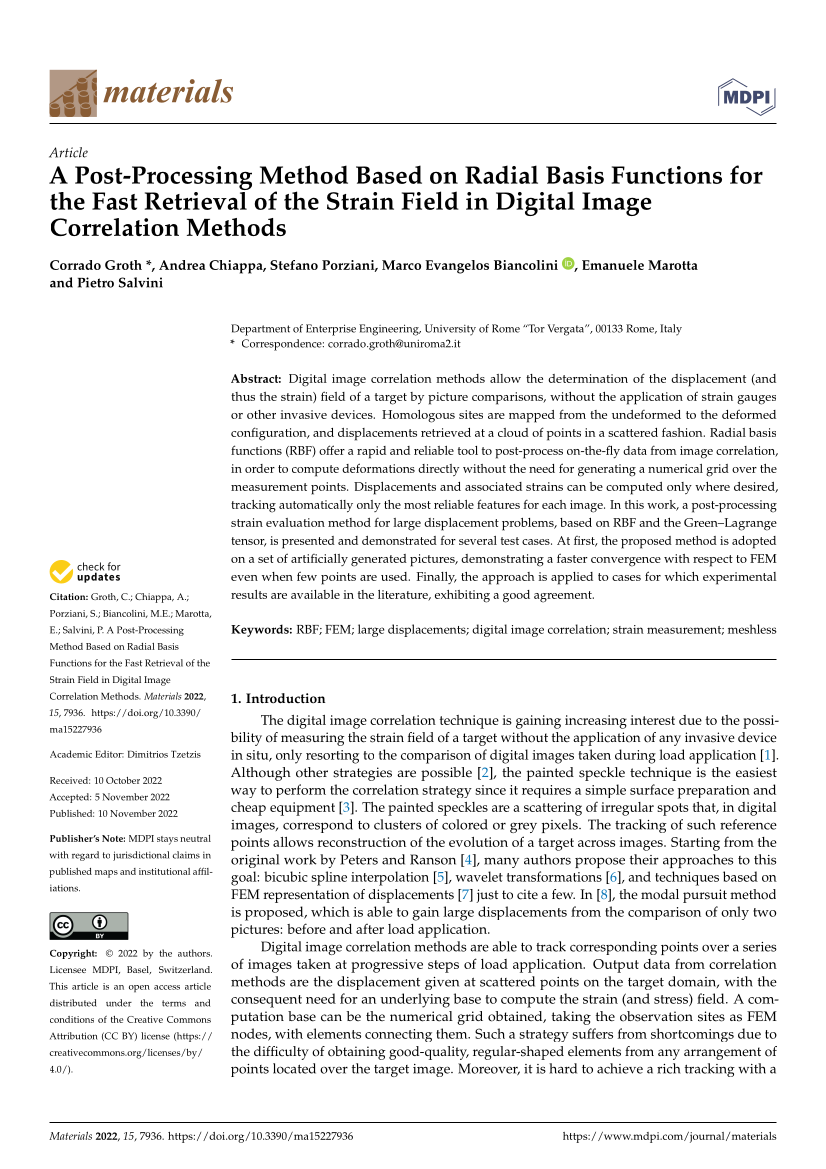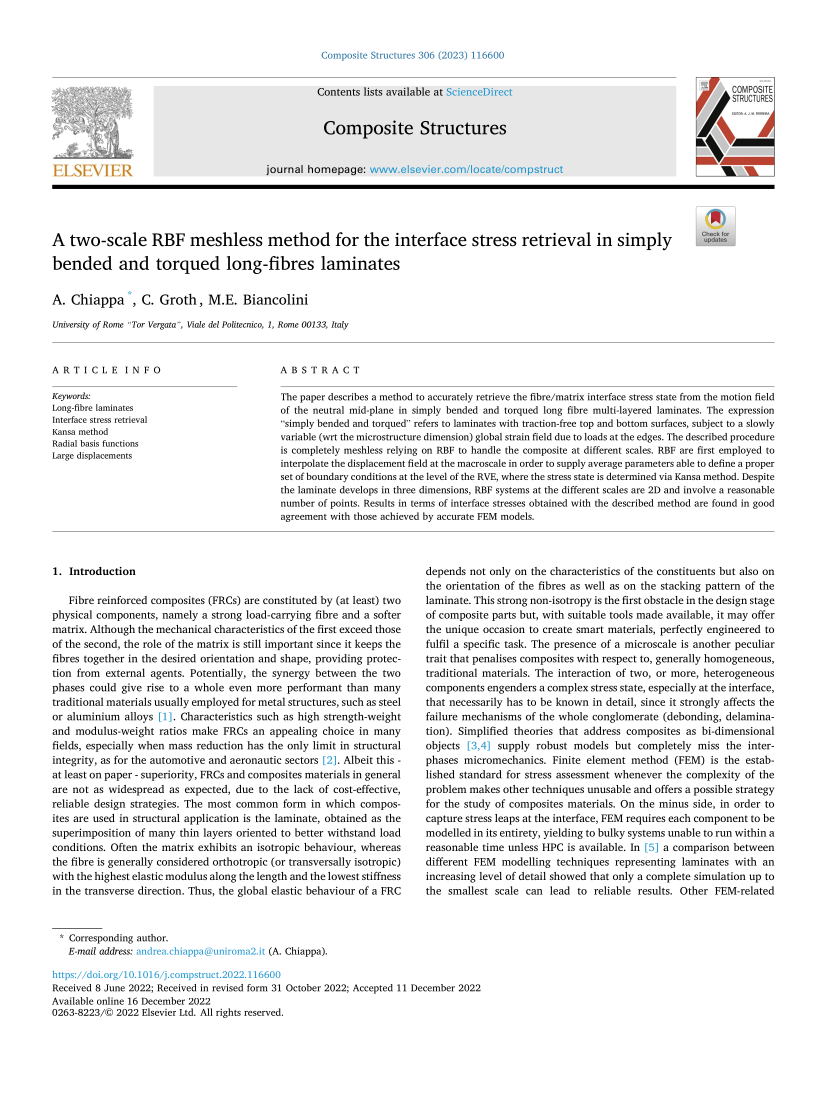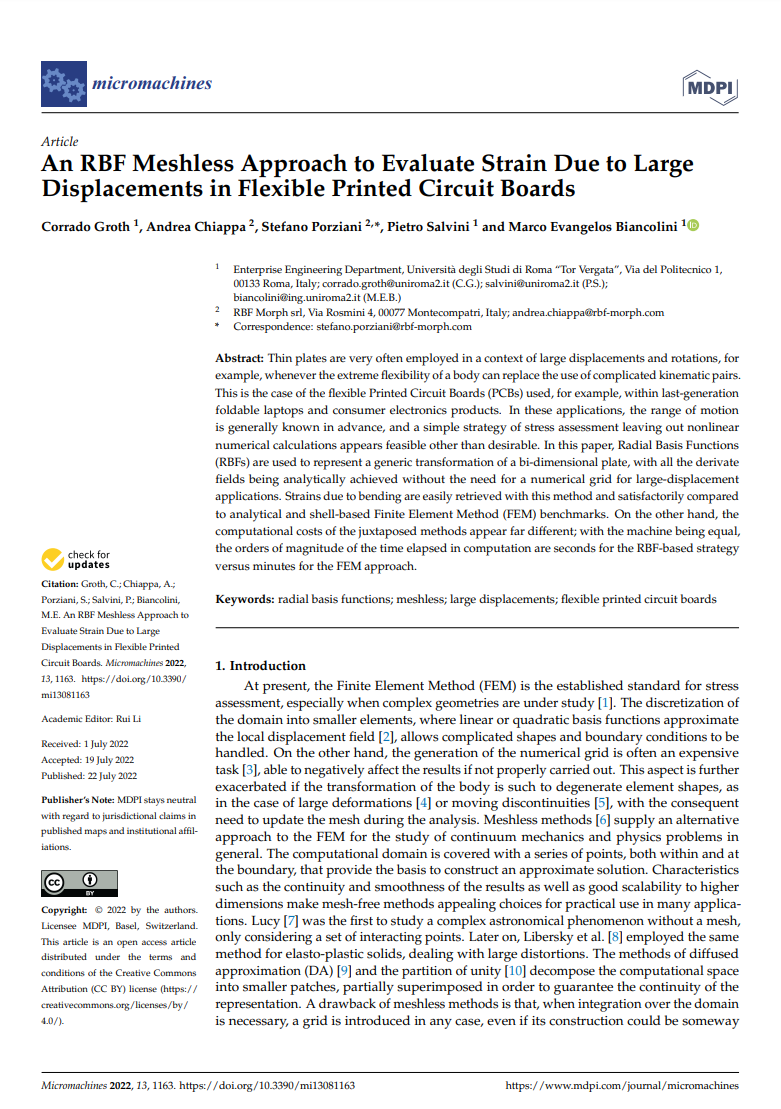New paper: A Post-Processing Method Based on Radial Basis Functions for the Fast Retrieval of the Strain Field in Digital Image Correlation Methods

Our latest work, on the meshless strain computation from Digital Image correlation (DIC) data characterised by large dispolacements, was published in Materials.
Groth, C.; Chiappa, A.; Porziani, S.; Biancolini, M.E.; Marotta, E.; Salvini, P. “A Post-Processing Method Based on Radial Basis Functions for the Fast Retrieval of the Strain Field in Digital Image Correlation Methods”. Materials 2022, 15, 7936. https://doi.org/10.3390/ma15227936
Abstract:
Digital image correlation methods allow the determination of the displacement (and thus the strain) field of a target by picture comparisons, without the application of strain gauges or other invasive devices. Homologous sites are mapped from the undeformed to the deformed configuration, and displacements retrieved at a cloud of points in a scattered fashion. Radial basis functions (RBF) offer a rapid and reliable tool to post-process on-the-fly data from image correlation, in order to compute deformations directly without the need for generating a numerical grid over the measurement points. Displacements and associated strains can be computed only where desired, tracking automatically only the most reliable features for each image. In this work, a post-processing strain evaluation method for large displacement problems, based on RBF and the Green–Lagrange tensor, is presented and demonstrated for several test cases. At first, the proposed method is adopted on a set of artificially generated pictures, demonstrating a faster convergence with respect to FEM even when few points are used. Finally, the approach is applied to cases for which experimental results are available in the literature, exhibiting a good agreement.
The paper can be downloaded or read at this link: https://doi.org/10.3390/ma15227936



Comments